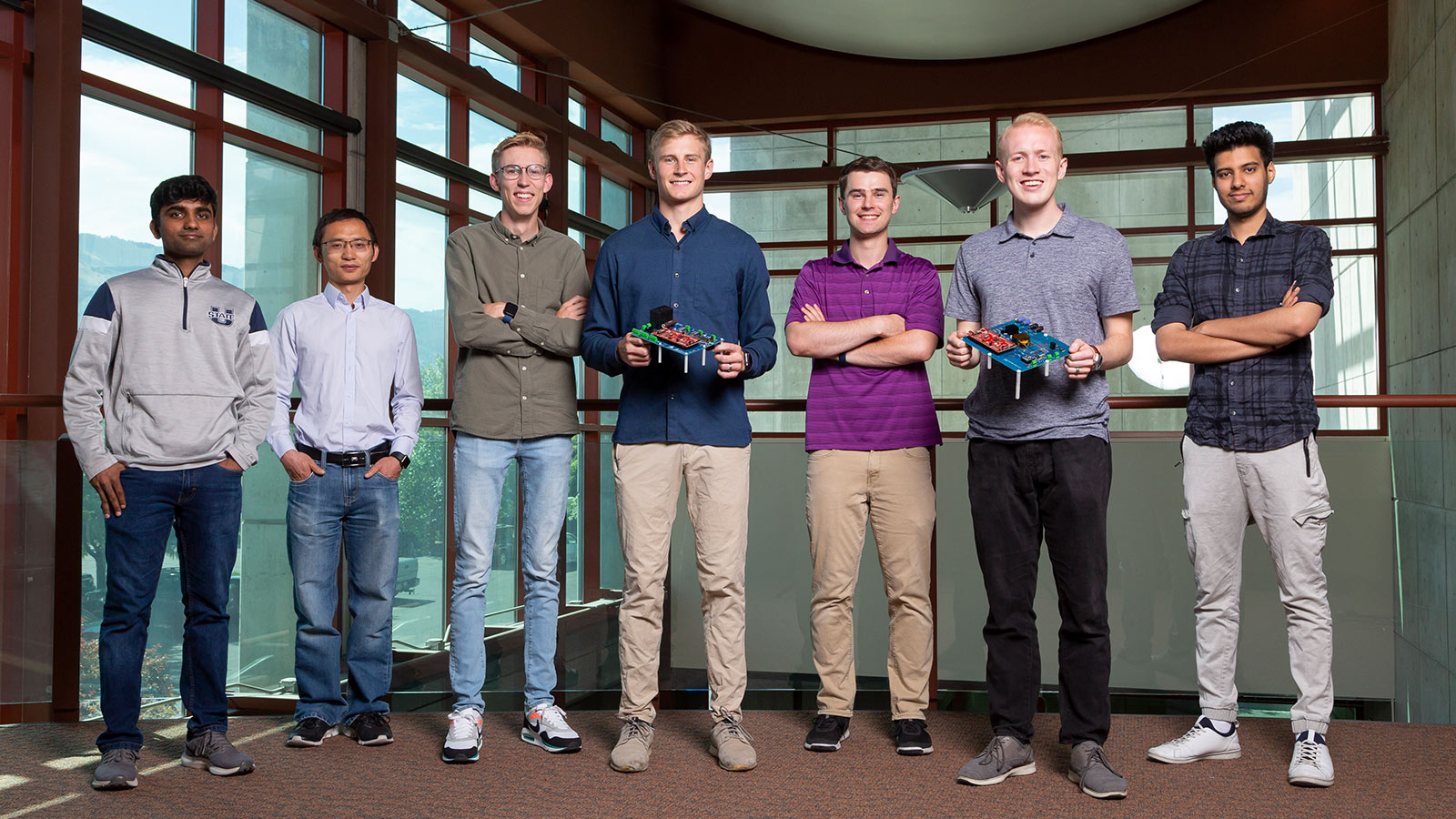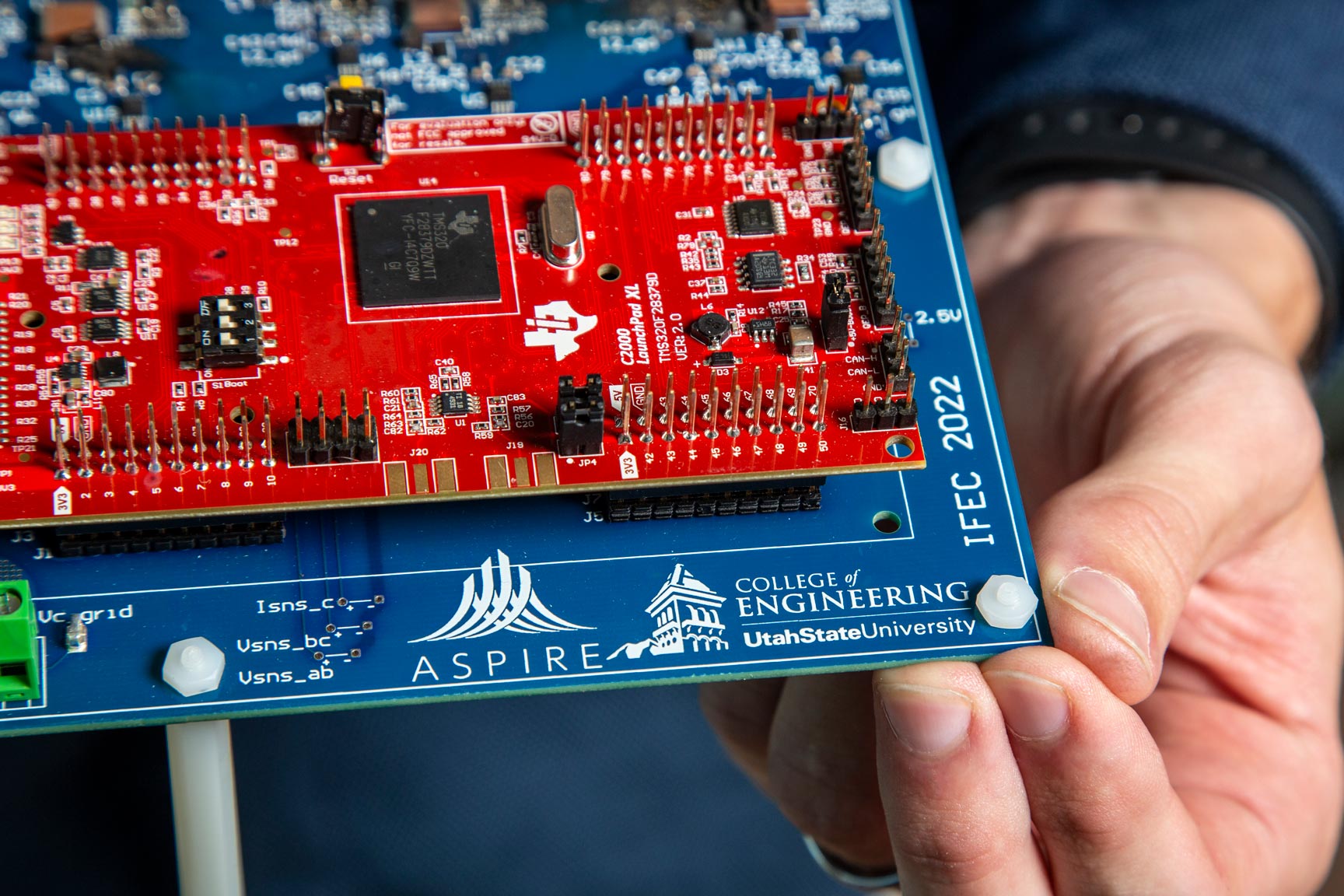USU Electrical Engineering Students Take Grand Prize at International Event
A team from Utah State University has won the $10,000 grand prize at this year’s International Future Energy Challenge in Knoxville, Tennessee.

From left, Aditya Zade, Assistant Professor Hongjie Wang, Dakota Goodrich, Tucker Skinner, Mckay Waite, Conner Sabin, and Sanat Poddar won the 2022 International Future Energy Challenge in Knoxville, Tennessee.
The win is a major accomplishment for the students and a first for USU. Undergrads Dakota Goodrich, Conner Sabin, Tucker Skinner, Mckay Waite and graduate mentors Sanat Poddar and Aditya Zade and faculty advisor Hongjie Wang outcompeted six other teams from around the globe to take the top prize.
The annual event was launched in 2000 to spur innovation and problem-solving in areas of energy and conservation. It is sponsored by the Institute of Electrical and Electronics Engineers, or IEEE.
This year’s challenge required teams to design and build a smart microgrid solar inverter, a device that enables the power grid to use renewable energy harnessed by solar panels. Entries were judged on multiple criteria including their ability to handle over 1,000 watts of power while operating at above 95 percent efficiency.
USU and six other teams from University of Belgrade, Leibniz University Hannover, Reutlingen University, University of Moratuwa, University of Maryland, and University of Connecticut competed at the event at the University of Tennessee from July 27–29.
The USU team says their innovative design can be mass produced for less than $200 per unit, which lowers the cost of energy and speeds up adoption of renewable energy systems.
“The experience and knowledge we gained working on this project has been invaluable and prepared us for graduate school,” said Skinner. “We hope IEEE considers us a success story because we entered the competition with limited experience.”
Professor Wang said he enjoyed watching the team members grow and develop their professional skills throughout the competition.
“The team has had strong support from the ECE department, the College of Engineering, Space Dynamics Lab and the ASPIRE Engineering Research Center,” he said. “That invaluable support attracted these students to electrified transportation and renewable energy technologies. And it encouraged them to pursue higher education beyond a bachelor’s degree, which significantly benefits USU and the engineering workforce.”
###
Writer: Matt Jensen, matthew.jensen@usu.edu, 435-797-8170
Contacts: Dr. Hongjie Wang, hongjie.wang@usu.edu, 435-797-0591 | Tucker Skinner, tucker.skinner@usu.edu


